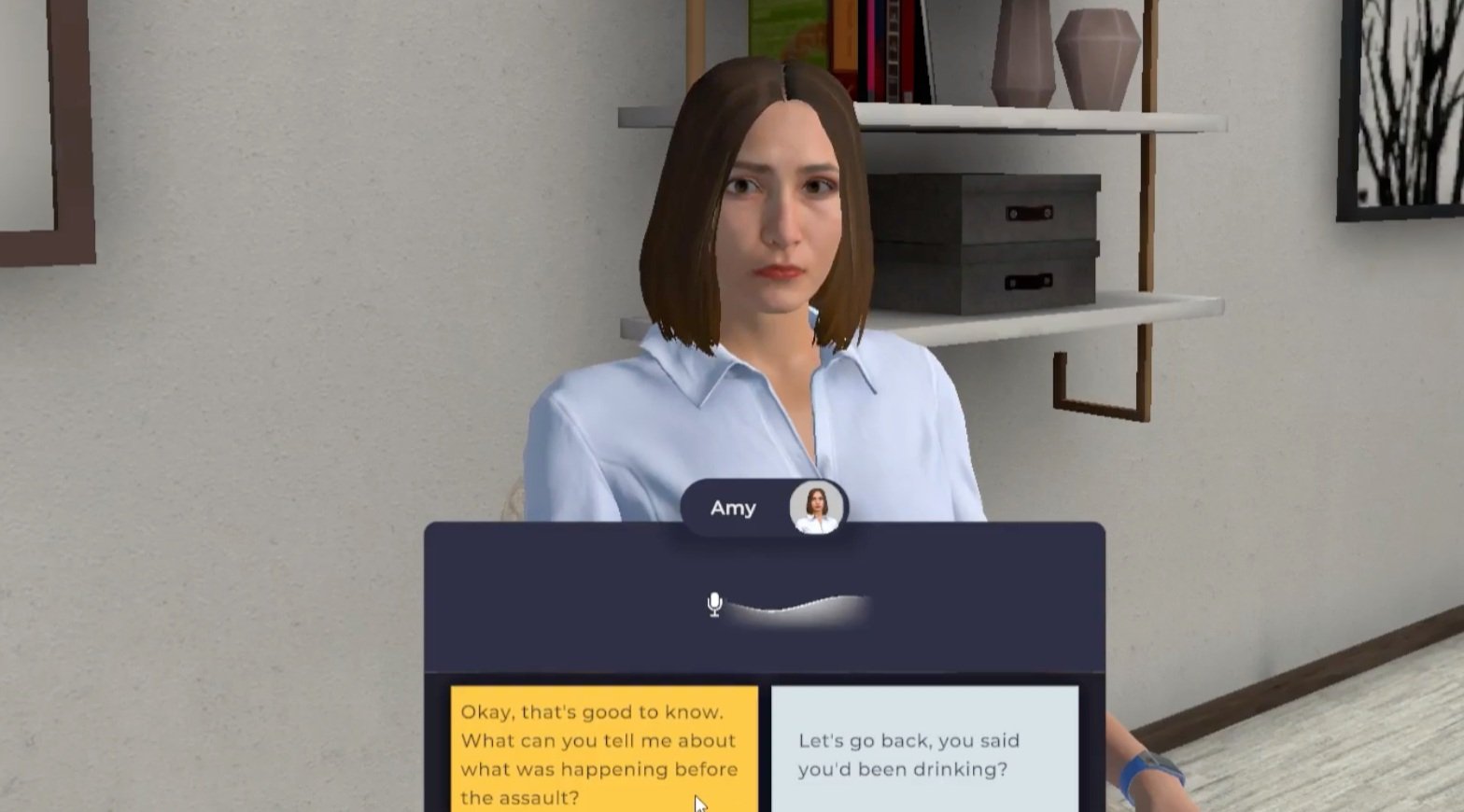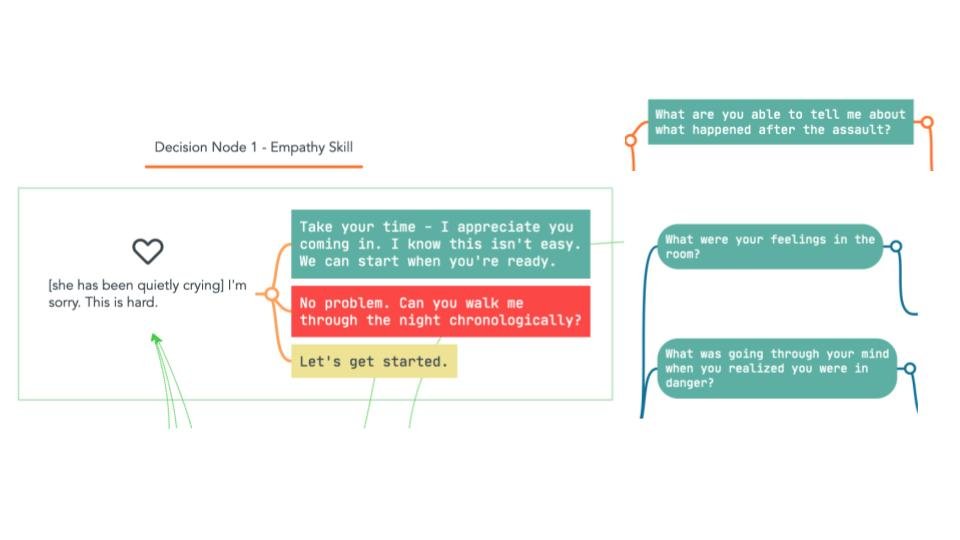

A Just Reality:
Immersive law enforcement training tool in virtual reality.
Background
In 2022, the teams at PUSH Studio and Matters at Play collaborated to develop a virtual reality (VR) training prototype centered around law enforcement’s investigative response to gender-based violence. The prototype immerses officers in reality-based scenarios where they can practice interviewing techniques through active dialogue in VR. The goal of the prototype is to offer a simulated space to build victim-centered, trauma-informed investigative skills that can then be effectively translated to real world settings. Scenarios and dialogues specifically focus on reducing bias, recognizing the effects of trauma, and building empathy within a social justice-oriented framework.
Challenge
Gender-based violence (GBV) is a widespread issue that adversely affects women, girls, and LGBTQ+/gender non-conforming individuals, causing significant harm not only to individuals but also to families and communities globally. According to the European Commission, one in three women worldwide has experienced physical and/or sexual violence in her lifetime. Despite this high incidence, less than 40% of women who suffer from violence seek any form of help, and of those, less than 10% turn to the police, according to The Rowman & Littlefield Handbook of Policing, Communication, and Society. The interaction of GBV victims with law enforcement is often marred by skepticism, hostility, and a general lack of sensitivity, which can exacerbate the victim's trauma and hinder the judicial process. Many GBV cases suffer from inadequate evidence gathering and a lack of proper investigative follow-through, contributing to secondary victimization and increased danger for the victims. A Just Reality aims to address these challenges by enhancing police training with a focus on understanding the role of implicit bias and the effects of trauma on victims, which are critical for improving the interactions between officers and GBV victims.
Deliverables:
High-fidelity interactive prototypes
PUSH services:
UI/UX design, User Research, Technology Prototyping
Domain:
Virtual Reality, Training, High-Fidelity Prototypes
PUSH team:
LeAnne Wagner
Lien Tran
Chryselle Rego
Chase Jones

Branching Dialogue Node Example
Project Collaborators
Approach
Due to the interdisciplinary nature of this challenge, assembling a team of subject matter experts was crucial in developing an informed tool. Developing initially at the University of Miami School of Law Human Rights Clinic, the team sought out collaboration from human rights & victim advocacy groups, law enforcement, and emerging technology experts. The project started by developing Amy’s Story, an initial scenario for officers to practice their trauma-informed interviewing skills. After settling at DePaul University as a partnership between Matters at Play and PUSH Studio, the second scenario Trey’s Story was developed to provide an LGBTQ-centered experience to complement Amy’s Story.
From research of background knowledge on trauma-informed interviewing, law enforcement directives, and the application of VR in educational spaces, a wealth of resources were compiled to inform the project’s direction. The team then created a branching dialogue tree for each scenario, laying out the user’s set of choices. Using the branching dialogue trees, the team developed a prototype VR training module using Talespin’s proprietary Co-Pilot Designer software. This included animations, voice line generation, and a system to track user score’s in the scenario.

Solution
Being developed in Talespin’s Co-Pilot Designer, A Just Reality was able to be shared and tested both in VR headset and through a desktop browser. Through iterative testing with law enforcement officers, subject matter experts, and scholars of the DePaul community, the narrative structure, character development, user interaction, and feedback scoring mechanisms were all refined.
Grading based on the categories of Professionalism, Interview, Empathy, Active Listening, and Trust, users receive feedback both during and post-experience advising them on how to improve their trauma-informed interviewing skills. Although some officers were frustrated by the pre-written dialogue options, being unable to “speak in their own words,” response to the project has been overwhelmingly positive. According to one participant from Chicago’s Buffalo Grove PD, “The scenario and inflection of the victim felt very authentic. The change in facial expression and body language had similarities with victims interviewed in the past.”
Moving forward, the A Just Reality team is exploring further scenario development and partner cooperation, as well as the application of generative AI and LLMs to the project process.
Map of Completed Branching Dialogue Tree
Screenshot from 2nd Scenario “Trey’s Story”




